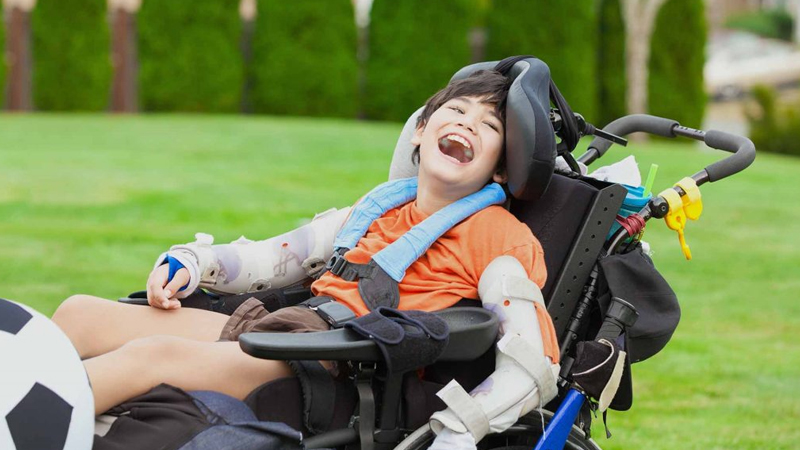Cerebral Palsy in Children

Cerebral Palsy in Children
Introduction:
Cerebral palsy is a complex neurological disorder that affects a significant number of children worldwide. Understanding its causes, impact on a child's neurological development, and the range of available therapies is crucial for parents, caregivers, and medical professionals. In this article, we will delve into the intricacies of cerebral palsy, shedding light on its origins, its effects on a child's life, and the innovative management strategies that pediatric neurologists employ to improve the quality of life for affected children.
Causes of Cerebral Palsy: Unraveling the Origins
Cerebral palsy is not a single condition but a group of disorders that impact movement, posture, and muscle coordination. It primarily originates from abnormalities or damage to the developing brain, often occurring before or during birth. Various factors contribute to its development, including:
- Prenatal Factors: Infections, maternal health issues, and genetic factors can increase the risk of cerebral palsy during pregnancy.
- Perinatal Factors: Oxygen deprivation, birth complications, and premature birth can lead to brain damage and subsequent cerebral palsy.
- Postnatal Factors: Brain injuries from accidents, infections, or other medical conditions occurring after birth can also contribute to cerebral palsy.
Impact on Neurological Development: Navigating Challenges
Cerebral palsy can present a wide spectrum of challenges for affected children, each case being unique. Common impacts on neurological development include:
- Motor Function Impairment: Children with cerebral palsy often struggle with muscle control, leading to difficulties in movement, balance, and coordination.
- Cognitive and Communication Challenges: Some children may experience cognitive impairments and difficulties in expressing themselves verbally or non-verbally.
- Sensory Issues: Sensory processing difficulties, such as sensitivity to touch or sound, can be common among children with cerebral palsy.
Effective Management Strategies: Empowering Children's Lives
Pediatric neurologists play a vital role in devising comprehensive management plans for children with cerebral palsy. The goal is to enhance mobility, alleviate discomfort, and optimize overall well-being. Some effective management strategies include:
- Physical Therapy: Tailored exercises and therapies can improve muscle strength, flexibility, and motor skills.
- Occupational Therapy: This focuses on enhancing daily living skills, such as self-care and fine motor activities.
- Speech Therapy: For children with communication difficulties, speech therapy can aid in developing communication skills.
- Medications: Certain medications can help manage muscle spasticity, seizures, and other associated issues.
- Surgical Interventions: Surgical procedures, such as muscle lengthening or orthopedic surgeries, can improve mobility and quality of life.
Looking Ahead: Research and Hope
The field of pediatric neurology continues to evolve, and ongoing research is exploring new avenues for understanding and treating cerebral palsy. Promising advancements include stem cell therapies, innovative assistive technologies, and early intervention strategies that aim to improve outcomes for children with cerebral palsy.
Conclusion
Cerebral palsy is a complex neurological condition that presents unique challenges for affected children and their families. Understanding its causes, impact, and management options is essential for providing the best possible care and support. Pediatric neurologists play a crucial role in tailoring interventions to the individual needs of each child, empowering them to lead fulfilling lives despite the challenges posed by cerebral palsy. By staying informed and seeking early intervention, families can navigate this journey with hope and determination.
If you're seeking expert guidance and support for a child with cerebral palsy, our team of dedicated pediatric neurologists is here to help. Contact us today to schedule a consultation and learn more about how we can work together to optimize your child's well-being.